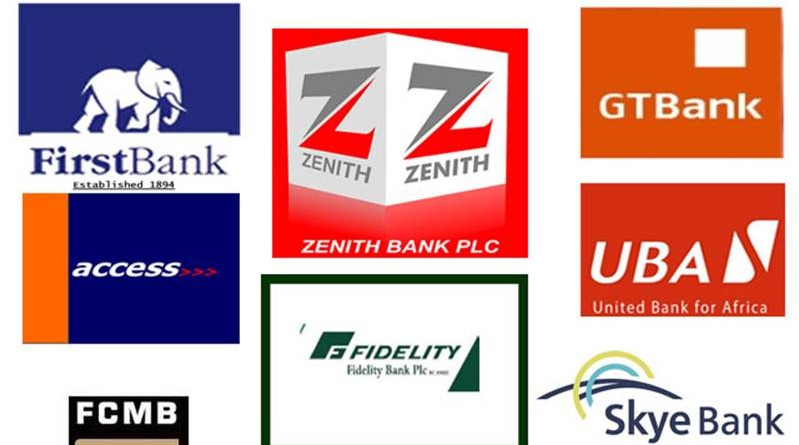Less than 1% of bank credits goes to Nigerian SMEs
Omidyar Network is a philanthropic Investment firm which has just facilitated a $6.9million loan for Lidya, a Nigerian FinTech company, to bridge the existing Small and Medium-scale Enterprises (SMEs) funding gap. Ameya Upadhyay, Omidyar‘s Investment Principal, speaks in this interview conducted by SULAIMON OLANREWAJU on how modern technology could be deployed to overcome the challenge of poor funding for SMEs.
which has just facilitated a $6.9million loan for Lidya, a Nigerian FinTech company, to bridge the existing Small and Medium-scale Enterprises (SMEs) funding gap. Ameya Upadhyay, Omidyar‘s Investment Principal, speaks in this interview conducted by SULAIMON OLANREWAJU on how modern technology could be deployed to overcome the challenge of poor funding for SMEs.
Lidya has just raised $6.9million to fund small and medium scale enterprises in Nigeria. What is the significance of this?
Omidyar Network is an impact investment fund which means that we support companies that help individuals improve their lives. We do that through multiple levels. One is by providing access to financial tools that can help people transform their lives. And if you look at Africa, 70 per cent of people are employed by small businesses. But less than one per cent of commercial bank credit goes to these small businesses to grow. And we are trying to solve this challenge. We are trying to provide credit that can help small business to grow, get more revenues to employ more people and to be an engine of growth for the economy. So that, eventually, they can provide goods and services to people and provide employment.
This was the reason we funded Lidya. Traditionally, commercial banks in Nigeria do not give credit to small businesses; and the reason for that is with small businesses, it is very difficult to estimate their creditworthiness. It is very difficult to assess what is their revenue and creditworthiness because they don’t have audited financial statements, and so on. So, banks only lend to companies that can give hard collateral or have audited financial statements. So, Lidya is solving this problem by saying, ‘I am not going to give a loan against a collateral. I am giving a loan which is not based on a collateral, but on a financial statement.’ That is the significance of the facility because those small businesses that cannot get bank credit will be able to raise facility though they do not have collateral.
We look at companies that accept payments digitally, and use that digital transaction data to underwrite them. For example, you know that there is a lot of digital payment growth in Nigeria. People are making payments through USSD and so on. The other side of this is when you are making payments digitally, whether it is to an online merchant or some other person, you have a data log of these transactions, which can help a company like Lidya tell an SME, ‘Okay, I can see from digital transactions that you get $100 per month as revenue, and you are going to be able to repay my loan.’ Because of this ability that Lidya has built it can actually lend to businesses that banks won’t. And this is the reason we invested in Lidya, to unlock capital to small businesses.
How secure are the loans without collateral? What is the likelihood of defaulting?
The likelihood of defaulting is very low, because Lidya is able to tell with great prediction that the company will have the money to be able to pay back the loan. Because it can see over a period of months, this company every month has earned enough money to repay its loan. So it is able to, by processing that data, tell very clearly that the company will pay back its loan.
The funding gap for SMEs in Africa is in trillions of dollars. How do you think this funding gap can be bridged? Apart from these particular tools that Lidya is using, what other things can African governments do for small businesses?
It is a very good question and I think it doesn’t have a very simple answer. Number one, I will say that let’s examine what are the bottlenecks first, and then, how can they be solved. The bottleneck is very simple. The question you have asked is what banks are asking: how do I know my money will come back? That is why the trillion-dollar gap you talked about exists. There are a couple of ways to handle this. One way is what Lidya is doing, which is to look at other forms of data to know if the business has enough money to pay back.
From our own perspective, we are not interested just in Lydia’s success, because we know that even if Lidya is successful, it is not solving the problem for the continent. What we want is for Lidya to be a blueprint. We want Lidya to succeed and demonstrate that this is possible. What will that do? That will make sure that other people are inspired in other countries to try the same business model. And there are other people who will replicate this idea. And because investors will see that Lidya has been successful, other investors can come in and support those businesses. So, it is a very good domino effect that we are hoping happens. That’s number one.
I was hoping that from the government perspective, some of the things that the Nigerian government has done are very helpful. Like BVN which uniquely identifies an organisation. It is a public infrastructure that is very important. Some of the innovations that the Nigerian government has put in place should be copied in other countries. The USSD payment mechanism that is used in Nigeria to expedite payment is very powerful. I also think that government should provide some credit guarantees to reduce losses for banks so that they can channel credit to SMEs.
I also think that government should provide collateral registries for moveable properties. That can also help SMEs that don’t have houses or a factory, but have computers and printers and they can then pledge those as collaterals. These are some of the things I think can help bridge this gap you talked about.
The small businesses, apart from funding, what other challenges do they face?
Very good question. I think their first challenge is increasing their customers – digital marketing! Let’s take an example, if you are a small clothes manufacturer, and you are selling your merchandise on Jumia, what are the challenges you are facing? Number one, how do you get people to buy your brand of clothes? So, you need help with digital marketing. You need help with search engine optimisation. You need help with reaching out to your customers.
Number two, you need a customer relationship management (CRM) software. How do you manage your invoicing? How do you collect payments basically?
Number three, you need help in operations, and running your operations well, which I don’t think is a big challenge because as I often tell people, I think Nigeria is a country and Africa is a continent where its people are extremely entrepreneurial. They know how to run the business.
And then the final challenge in the back end is credit. So, I think the biggest challenge here is acquiring customers through marketing, and then getting paid, collecting payments, invoicing and taxation, paying your taxes on time.
What are the different kinds of support your organisation provides to entrepreneurs who seek capital from you?
We provide capital. Then, we also provide human capital support. You can have the best product and the best company, but if you cannot build a powerful organisation behind that (organisational) culture, values and a good team, then you are not going to get anywhere. So, we provide support to companies to hire the right talent, retain the right talent, grow the talent to imbibe the right culture and values and to build a high performing organisation, which is a slightly different skill set. So, we have a dedicated team that is in-house that sits with the entrepreneurs and becomes a third partner to make this happen.
The next is intellectual capital. So, we provide research, data and market insights to our companies. We also fund organisations that produce market research and insights.
We also provide a lot of networking. We connect with other investors to business partners and to the companies within our portfolio. As an example, we have a big portfolio in Nigeria. One of our investor companies is Flutterwave. Flutterwave provides payment processing for digital transactions. And it can very easily partner with Lidya who can then use these transactions to assess creditworthiness of small businesses as I talked about.
By , Tribune Business, tribuneonlineng.com




